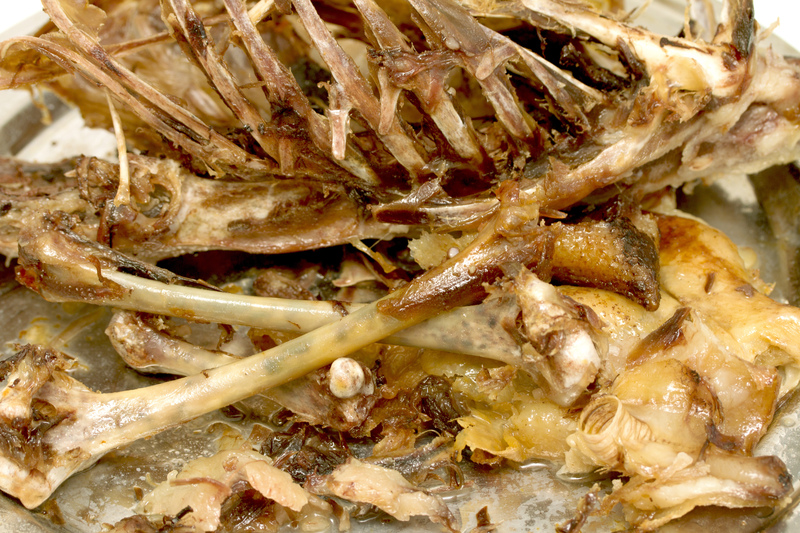Practical Tips for PPE Disposal in Everyday Life
Personal Protective Equipment (PPE) is now a common sight in our daily routines, especially in response to widespread health concerns like the COVID-19 pandemic. From disposable face masks to gloves and face shields, these protective items play an essential role in safeguarding public health. However, a new environmental challenge has emerged: the proper disposal of PPE in our everyday lives. Incorrect PPE disposal can lead to pollution, environmental hazards, and even health risks for sanitation workers and the general public.
In this comprehensive article, we will provide practical tips for PPE disposal at home, at work, and in public spaces. By learning the right methods and understanding the impacts of PPE waste, you can ensure your actions protect both people and the planet.

Understanding the Importance of PPE Disposal
Before diving into specific PPE disposal tips, it's crucial to understand why proper disposal of PPE is so important. PPE items such as masks, gloves, and goggles are often made from non-biodegradable plastics. If not discarded correctly, they end up in landfills, waterways, or even as litter on our streets, posing environmental risks and potential hazards to wildlife.
- Environmental Impact: PPE breaks down into microplastics, polluting oceans and harming aquatic life.
- Health Considerations: Used PPE can carry pathogens. Careless disposal could spread germs to others.
- Waste Management Challenges: PPE waste complicates recycling and puts extra strain on landfill capacities.
Proper disposal methods of PPE are critical for protecting both our ecosystem and community health.
Types of PPE and Their Disposal Needs
Not all PPE items are created equal. Understanding the types of PPE you use helps to determine the best way to dispose of them:
- Disposable Masks: Typically made from non-woven fabric or polypropylene plastic.
- Reusable Cloth Masks: Made from fabric and designed for washing and reuse.
- Nitrile or Latex Gloves: Single-use gloves common in many settings.
- Face Shields and Goggles: Often made from plastic; sometimes reusable if sanitized.
- Protective Gowns and Coveralls: Can be single-use or reusable, depending on the material.
Each requires its own approach to safe disposal or, ideally, reuse.
Proper PPE Disposal at Home
Many people use PPE daily at home, especially during flu season or when someone is ill. Here are practical steps to safely dispose of PPE at home:
- Do Not Recycle Disposable PPE: Masks and gloves cannot be placed in regular recycling bins as they can contaminate the recycling stream and endanger workers.
- Seal Contaminated PPE: Place used masks and gloves in a dedicated trash bag. If you're caring for someone sick, double-bag the waste and tie it securely before disposal.
- Avoid Touching the Outside: Remove PPE using proper technique--touch only the ear loops or straps, not the front surfaces, to avoid contaminating your hands.
- Wash Hands Thoroughly: Always wash or sanitize your hands immediately after handling discarded PPE.
- Regularly Clean Reusable PPE: Wash cloth masks and other reusable PPE frequently in hot water to maintain effectiveness and hygiene.
Tip: Separate all PPE waste from general waste, especially if anyone in your household is unwell, to reduce transmission risk.
Office and Workplace PPE Disposal
Workplaces, especially those in healthcare or public-facing sectors, generate large volumes of PPE waste. Here's how to manage PPE disposal at work:
- Dedicated Bins: Place clearly labeled "PPE Waste Only" bins in accessible locations.
- Train Staff: Educate employees on the correct way to dispose of single-use PPE and avoid recycling or leaving PPE in public areas.
- Use Lined Bins: Always use bins with liners and lids to prevent overflow and potential contamination.
- Regular Collection: Schedule frequent removal and safe handling of PPE waste to avoid accumulation.
- Inform Cleaner Teams: Provide clear protocols and personal protection for those collecting and disposing of PPE waste.
Promote a culture of responsibility in the workplace. *Small changes in habits--like using bins instead of desks or outdoor areas for PPE--make a significant difference.*
PPE Disposal in Public Spaces
Public PPE litter has become a common problem in parks, sidewalks, and even beaches. To help reduce this:
- Never Litter: Always dispose of masks and gloves in public trash bins, not on the ground or in nature.
- Carry a Bag: If you don't find a trash can, keep a resealable bag with you to store used PPE until proper disposal is possible.
- Advocate for More Bins: Encourage businesses and local authorities to provide sufficient waste bins for PPE in public areas.
- Participate in Cleanups: Join community efforts to clean up PPE litter in parks and other shared spaces.
Remember: PPE left in the environment can be mistaken for food or nesting material by wildlife, with fatal consequences.
Best Practices for Reducing PPE Waste
While proper disposal is essential, reducing PPE waste at the source is even better. Here are some practical tips for minimizing your PPE footprint:
Switch to Reusable Options Where Possible
- Reusable Cloth Masks: These can be washed and reused multiple times, significantly cutting down on disposable mask waste.
- Washable Gloves: In non-medical settings, consider durable, reusable gloves that can be sanitized regularly.
- Face Shields: Choose shields that can be cleaned and disinfected instead of single-use variants.
Buy Responsibly
- Purchase only the PPE you need to avoid unnecessary accumulation and disposal.
- Support brands with eco-friendly packaging or sustainable manufacturing practices for PPE.
Community Initiatives and Education
- Join or advocate for PPE waste collection and recycling programs in your locality.
- Educate friends, family, and colleagues about the importance of correct PPE disposal.
- Share best practices on social media to raise awareness and encourage a collective effort.
What Not to Do With PPE Waste
Many common mistakes can lead to more harm than good. With that in mind, here are some things you should never do when disposing of PPE:
- Don't Flush: Never flush masks, gloves, or wipes down the toilet. This can clog pipes, damage sewage systems, and pollute water bodies.
- Don't Burn at Home: Burning PPE at home can release toxic chemicals. Leave proper disposal to waste management professionals.
- Don't Mix With Recyclables: PPE is not recyclable through regular systems and may cause entire batches of recycling to be rejected.
- Don't Leave PPE on the Ground: Littered PPE is unsightly and poses infection and environmental risks.
Innovative Solutions for PPE Waste
Globally, new PPE waste solutions are being developed. Some areas have started specialized recycling for PPE. For example, some companies manufacture benches, roadways, or construction materials from recycled mask materials. If your community offers specialized PPE collection, take advantage of it!
Be proactive and keep up-to-date with local guidelines as more innovative solutions for PPE disposal become available.
A Step-by-Step Guide to Disposing of Common PPE Items
How to Dispose of Disposable Masks Safely
- Remove the mask by handling only the ear loops or ties.
- Do not touch the front of the mask.
- Place the used mask in a plastic or paper bag, then seal it.
- Discard the bagged mask in the regular trash.
- Immediately wash or sanitize your hands.
How to Dispose of Gloves Properly
- Pinch one glove at the wrist and peel it away from your hand, turning it inside out.
- Hold the removed glove in the other gloved hand. Slide your ungloved finger under the wrist of the remaining glove and peel it off over the first glove.
- Place both gloves in a bag and seal tightly before placing in the trash.
- Wash your hands thoroughly.
Disposal of Face Shields and Reusable PPE
- Clean face shields and other reusable PPE after each use with alcohol-based wipes or soap and water as appropriate.
- If broken or no longer usable, check with local waste facilities if special plastic disposal is available, or discard in the general trash if not recyclable.
Frequently Asked Questions About PPE Disposal
Can PPE be recycled?
In most cases, single-use PPE cannot be recycled in regular household recycling bins due to contamination and material types. Some specialty facilities are researching methods, but for now, treat used PPE as general waste unless your locality offers a dedicated program.
What should I do if I see PPE litter?
If you find discarded PPE in the environment, use gloves or a litter picker to safely collect it and dispose of it in a trash bin. Remember to sanitize your hands afterward!
Are biodegradable PPE alternatives available?
There are emerging options for biodegradable masks and gloves. However, their effectiveness and proper standards are still being studied. Check for certifications before switching to these products.
How can businesses manage large volumes of PPE waste?
Businesses should provide dedicated PPE disposal points, train staff, schedule regular waste collection, and stay updated on local regulations for hazardous waste management.

Key Takeaways for Everyday PPE Disposal
- Never put PPE into the recycling bin; always use the general waste unless a specialized PPE collection is available.
- Seal used PPE before throwing it out to keep handlers and the environment safer.
- Wash hands after handling discarded PPE.
- Switch to reusable options when possible.
- Be proactive in your community--promote awareness and good habits regarding PPE disposal.
With these practical tips for PPE disposal in everyday life, you can make a real difference for both public health and the environment. It starts with small actions at home, work, and in public spaces--and every effort counts.
Conclusion
The widespread use of PPE is vital in protecting our communities, but it brings new challenges in terms of managing waste responsibly. By following these practical tips for PPE disposal, we can reduce environmental damage, protect wildlife, and safeguard one another from health risks.
Remember, the journey to a cleaner and safer world begins with how you dispose of just one mask or glove. Take responsibility today, encourage others, and be part of the solution.